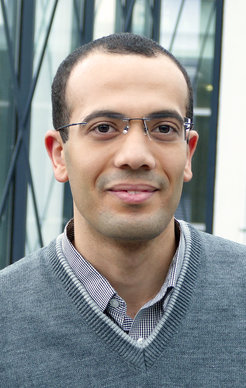Charles W. Misner Award for Mohammed Khalil
Khalil is the first recipient of this new University of Maryland Physics Department student award
Mohammed Khalil, PhD student at the Max Planck Institute for Gravitational Physics in Potsdam and at University of Maryland, will receive the first Charles W. Misner Award from the university’s department of physics. The award which is endowed with US$1,000 was established in honor of Professor Charles W. Misner to recognize outstanding thesis work in gravitation and cosmology. The virtual award ceremony will be held May 27.
“I am very pleased to receive the first Misner Award,” says Mohammed Khalil, doctoral student at the Max Planck Institute for Gravitational Physics (Albert Einstein Institute/AEI) in Potsdam. “I would like to thank my advisor Alessandra Buonanno and all my collaborators; this award is a great recognition of our research and I am feeling honored and proud!”
Mohammed Khalil’s research focuses on analytical approximation methods for the dynamics of spinning compact binaries, moving on quasi-circular or eccentric orbits, with the goal of improving gravitational waveform models. He has also explored possible signatures of modified theories of gravity on gravitational waveforms emitted by compact-object binaries.
The jury awarded Khalil the prize for “applying innovative analytical methods to describe the relativistic dynamics of spinning compact-object binaries with unprecedented accuracy, and for novel explorations of strong-field effects in modified gravity theories.”

Mohammed Khalil received his BSc degree from Alexandria University, Egypt, in 2016. He started his Ph.D. at the University of Maryland (UMD), College Park, in 2016 and joined Professor Alessandra Buonanno’s “Astrophysical and Cosmological Relativity” department at the AEI in January 2018. He is expected to graduate at UMD in 2022.
The Charles W. Misner Award from the University of Maryland Physics Department will be given every two years to students in the UMD physics or astronomy department who have done outstanding Ph.D. thesis work in the general areas of gravitation and cosmology, theory or experiment. This includes but is not restricted to, classical and quantum gravity and cosmology, gravitational wave astronomy and physics, black hole astrophysics, and early universe cosmology. The award which is endowed with US$1000 is to be bestowed only when there is a qualified candidate of high standard. It can also be shared by two candidates at one time.












